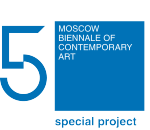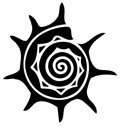
VISITOR _ TALKS.1: A Special Project @ The 5th Moscow Biennale of Contemporary Art
The common starting point is the State Darwin Museum. Meeting and exchange between the artistic and scientific discipline. What is the critical discourse in contemporary art and why can it be relevant in a museum of natural sciences?
See program below.
Download and share flyer for the event!
OCTOBER 16-18 2013 @ STATE DARWIN MUSEUM
TALKS. OPEN LECTURES. ROUND TABLE.
1. sounds
2. learning / aesthetica
3. museum / exhibitions
OCTOBER 16-20 2013 @ STATE DARWIN MUSEUM
FILM PROGRAM
1. Wednesday 16 October – sounds
* 16.00 – 17.00: OPEN LECTURE
Susanne Skog – composer and sound artist
Presentation of Öyvind Fahlström’s sound works ”Fåglar i Sverige” [Birds in Sweden] from 1963.
* 17.00 – 17.20: COFFEE BREAK
* 17.20 – 17.50: CONCERT/VIDEO:
Markus Ernehed – There is a Visitor 07:07
(Zach Herchen, music / Raketa, video)
Musician who likes electronical music just as much as country and jazz. Toured the USA several times performing with Abba-tribute Arrival. Played with hiphop-bands as well as avant-garde music. In 2013 he left Stockholm behind for his childhood home on the countryside of Jämtland, Northern Sweden. Markus Ernehed, Kalom, Saxophone.
Jens Comén – Far North 10:27
(Mattias Sköld, music / Raketa, video)
Has been travelling all around the world, playing with his band Hoven Droven. Toured through out Norway performing for school kids with The Jets. From small venues on Swedish countryside to New York, and now, The Moscow Biennale! Jens Comén, Östersund, Saxofon
2. Thursday 17 October – learning / aesthetica
* 13.00 – 15.00: OPEN TALK & DISCUSSION
Natalia Nosova – Head of School Department, the State Darwin Museum
Petra Lundberg Bouquelon – Musician and composer. Lecturer and subject coordinator in esthetic learning, The Academic School of Culture and Education. Sodertorn University.
What impact can art and the esthetic have on learning? What do we consider as knowledge and how can knowledge and education include transformative learning or Bildung? How do we make practice out of theory? Reflections around these three questions.
* 16.00 – 17.20: WORKSHOP: PLAY / SECRETS / FRAGMENTS
Workshop together with visitors of the museum. Collaboration with the School Department at the State Darwin Museum as a continuation and development of Raketa’s & the Museum’s first collaboration in September 2012.
3. Friday 18 October – museum / exhibitions
* 13.00 – 13.45: OPEN TALK
From Raketa – Johanna Bratel, Landscape Architect / Cecilia Enberg, Artist / Åsa Lipka Falck, Artist
Presentation of methodological development based on a couple of projects completed within the recent years and specific The Mountain / The Path, displayed as a fragment in the ongoing exhibition. Intro by Johanna Bratel.
* 13.45 – 14.00: COFFEE BREAK
* 14.00 – 16.00: ROUND TABLE
Anna Klukina – Director, State Darwin Museum
Natalia Nosova – Head of School Department, the State Darwin Museum
Igor Fadeev – Leading Researcher, State Darwin Museum
Ekaterina Borovskaya – exhibitory agency Art Contract between curator and museum
Anastasia Ryabova, Artist
Moderator: Ekaterina Sharova, Independent curator, Oslo/Arkhangelsk
The importance of visualization to formulate/create knowledge. How do we share knowledge? How do we mediate knowledge? The museum, the archive, the collection as a place for knowledge exchange and meeting.
* 16.15 – 17.15: GUIDED TOUR – THERE IS A VISITOR # 13
Yana Shklyarskaya – Head of exhibitory projects of State Darwin Museum.
A guided tour and strolling conversation.
* 17.15: MINGLE & DRINK
FILM PROGRAM
OCTOBER 16 – 20 @ State Darwin Museum
Snæbjörnsdóttir/Wilson: Vanishing Point (17 min)
Thursday 17 October: 17.20
Friday 18 October: 17.20
Saturday 19 October: 17.00
Sunday 20 October: 17.00
Vanishing Point: Where Species Meet is a three-channel video work, originally commissioned for the Gothenburg Biennial 2011. The brief was to make a site-specific work and we focused on the roof of the main Biennial building called Roda Sten on the River Gota waterfront.
The performance-based HD video work documents a meeting between a human and various species of gull around a specially built table at which food is prepared and shared.
Although the work makes references to a biblical miracle narrative in which ideas of generosity are key, extending the idea strategically across and between species Vanishing Point can be seen as a critique on the legacy of how Christian values have been interpreted and together with Cartesian objectivity have placed anthropocentrism and human interests at the heart of our conceptions of the world to the detriment of more ecological consciousness. Such interests have contributed to a dislocation between human beings and the wider environment which is seen as a series of resources and sites for exploitation
Vanishing Point examines the potential importance of what may remain beyond sight, beyond representation in considering a non-anthropocentric view. How something implicit but ultimately specifically occluded may act as a spur for extending our perceptual reach.
—
THERE IS A VISITOR # 13.
Footnotes in the State Darwin Museum
September 20 – October 20, 2013.
The museum and the nature that surrounds it act as a model and starting point for an exploration as well as a discussion on the significance of public space; making place for talks and discussions of the continuous development of democracy – in theory and in practice.
In early spring 2006 Raketa made a documentation of the Biological Museum in Uppsala, Sweden. The documentation raised many questions concerning the identity of a museum containing a collection of the surrounding natural habitat. In what ways can the museum be a possible forum for discussing issues about nature, the global environment, politics, ethics, right of common, art, biology, philosophy, utopias and our common cultural heritage?
This became the starting point and take-off for There is a Visitor # 13, a project together with State Darwin Museum in Moscow. The museum was founded in 1907 as part of the Moscow Higher Female Courses (MHFC). The museum holds a very large collection, an extensive archive and a great research library. One of the museum’s four founders was an artist and the museum also own a large collection of art. It’s the first time the museum makes an exhibition of this kind: artists based their work upon the museum collection, comments and starts a talk concerning a museum and it’s content and context.
The project has many inputs – but one is the need to communicate and to perceive the threats to biodiversity that exists but can not be seen – perhaps this is where a meeting between art, nature and science is important?
/ Raketa, Uppsala 2008 – Mockba 2013
With support from: Swedish Arts Council, State Darwin Museum Moscow and The Embassy of Sweden in Moscow.
Organizers: r a k e t a @ The State Darwin Museum
Venue: The State Darwin Museum
Address: 57/1 Vavilova st. / www.darwin.museum.ru
Contact phone number:
+007 499 763 2253 (admin.) +007 499 132 0202 (int. relations)
The nearest metro station: Akademicheskaya
r a k e t a is running interdisciplinary, collaborative projects
and experiments within art, design, architecture and digital media.
www.raketa.nu – www.visitors.nu – www.darwin.museum.ru
with the warmest thanks to the little river!



